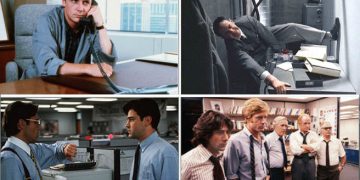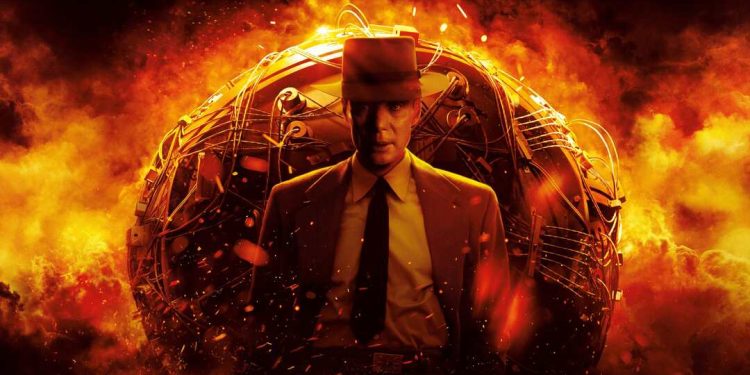Christopher Nolan’s latest film, Oppenheimer, is a towering achievement that masterfully captures one of the most complex and controversial figures in history. The film stars Cillian Murphy as J. Robert Oppenheimer, the theoretical physicist who led the Manhattan Project, the secret US program that developed the first nuclear weapons during World War II.
Oppenheimer is not a conventional biopic, but a dense and intricate period piece that plays out in a tangle of timelines, flashbacks, and flash-forwards. Nolan uses his signature non-linear storytelling to explore the inner and outer conflicts of Oppenheimer, who was both a brilliant scientist and a flawed human being. The film shows how Oppenheimer’s passion for physics, his anti-fascist convictions, his personal relationships, and his political affiliations shaped his decisions and actions, as well as the consequences of his involvement in the creation of the most destructive weapon ever made.
The film is visually stunning, using the large-format IMAX film system to create immersive and spectacular scenes. The cinematography by Hoyte van Hoytema contrasts the splendor of New Mexico’s desert panoramas with the claustrophobic interiors of Los Alamos, where Oppenheimer and his team of scientists worked under immense pressure and secrecy. The film also features some of the most impressive sound design and music ever heard in a cinema, with composer Ludwig Göransson creating an eerie and haunting score that matches the mood and tone of the film.
The cast is superb, with Murphy delivering a mesmerizing performance as Oppenheimer. He looks eerily like the real Oppenheimer, with his trademark hat and pipe, but he also captures his sense of solitude and emotional imprisonment. Murphy portrays Oppenheimer as a man who is haunted by his own genius, by his moral dilemmas, by his guilt and regret, and by his fear of being exposed or betrayed. He shows how Oppenheimer dissociates from unpleasant interactions, or gets lost in his own thoughts and memories, sometimes staring into the middle distance or directly into the camera.
The film also features Emily Blunt as Kitty Oppenheimer, Robert’s wife and confidante; Robert Pattinson as Richard Feynman, Robert’s friend and colleague; Tom Hardy as Leslie Groves, Robert’s military supervisor; Michael Caine as Niels Bohr, Robert’s mentor and inspiration; Kenneth Branagh as Edward Teller, Robert’s rival and critic; and Mark Rylance as Lewis Strauss, Robert’s nemesis and accuser.

Oppenheimer is a film that does not shy away from showing the dark side of science and history. It depicts the ethical and political dilemmas that Oppenheimer faced, as well as the devastating effects of the atomic bombings of Hiroshima and Nagasaki on the Japanese people. The film also portrays the aftermath of the war, when Oppenheimer became a celebrity but also a target of suspicion and persecution by the McCarthyites, who accused him of being a communist sympathizer and revoked his security clearance.
Oppenheimer is a film that will challenge and provoke viewers, as well as entertain and educate them. It is a film that raises important questions about science, war, morality, responsibility, and humanity. It is a film that honors the legacy of Oppenheimer, but also exposes his flaws and mistakes. It is a film that deserves to be seen on the big screen, with an open mind and an attentive ear.
You can find more information about the film on its IMDB page































